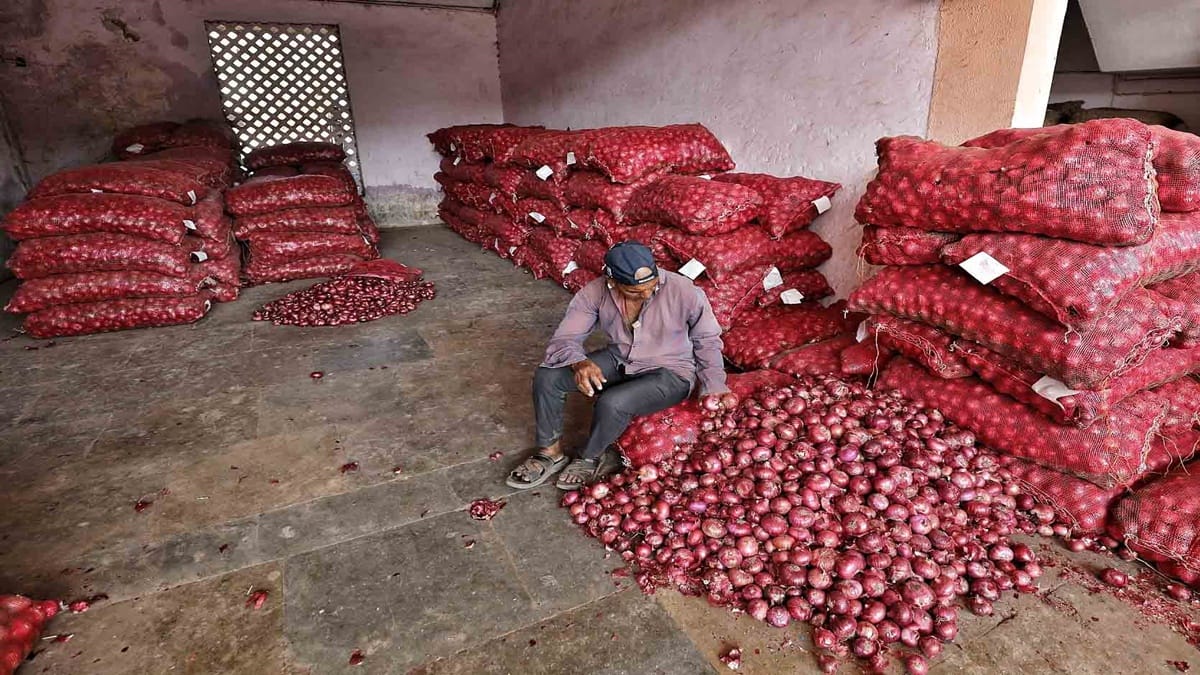Govt pays heed to RBI, moves to rein in food prices

To curb retail food prices, the government has announced a host of measures including ban on export of onion till the end of current fiscal, duty-free import of yellow peas, additional limits on stocking of wheat and allocation of additional quantities of the grain under the open market sale to bulk buyers from the buffer.
The move was aptly timed, with the Reserve Bank of India in its latest bi-monthly monetary policy review on Friday stating that, “uncertainties in food prices along with unfavourable base effects” are likely to lead to a pick-up in headline inflation in November-December.
The retail food inflation stood at 6.61% in October, even though it cooled from the highs caused by the spike in tomato prices in Q2 of the current fiscal year.
The ban on exports of onion follows the modal retails prices of the staple vegetable doubling to Rs 60/kg on Friday from Rs 30/kg three months back.
The spike in onion prices is despite the arrival of the kharif in the market.
In October, to discourage exports and improve domestic supplies, the government had imposed a minimum export price (MEP) for onion at $ 800/tonne which translates into Rs 67/kg. “Despite imposition of MEP, around 0.1 million tonne (MT) of kitchen stables were being exported every month,” an official told FE.
The government had imposed a 40% export duty on onions in August.
The government announced significant lowered stock holding limits for wholesalers, retailers and processors with immediate effect. “This has been done to prevent artificial scarcity and curb hoarding,” food secretary Sanjeev Chopra said.
It also allowed duty-free imports of yellow peas until March 31 next year to cool prices of pulses.
According to a notification by the Directorate General of Foreign Trade, exports of onions will be allowed after the government grants permission for shipments after submission of request from the countries. In addition, the onion currently can be exported provided loading on ship of the key vegetable has commenced, the consignment has been handed over to customs and shipping bill is filled.
Retail onion inflation rose by 42.08% on year in October as retail prices in several cities touched Rs 90/kg last month because of delay in arrival of kharif crops and reports of decline in production in Maharashtra and Karnataka.
During April-September of the current fiscal, India has exported 1.31 million tonne (MT) of onion to mostly to Bangladesh, Malaysia, United Arab Emirates, Sri Lanka and Nepal.
India exported a record 2.5 MT of onion 2022-23, which is an increase of 65% from the previous fiscal.
NCCF and Nafed are currently selling onion from the buffer stock at a highly subsidised rate of Rs 25/kg to consumers in various towns.
To enhance availability of wheat in the open market, the food ministry has decided to offer 0.4 MT grain weekly under the open market sale scheme (OMSS) from the FCI stock instead of current practice of 0.3 MT to the bulk buyers from December 20.
The government also announced an additional allocation of 2.5 MT to be sold under the OMSS to bulk buyers through weekly e-auction during January-March, 2024 besides 10.15 MT already approved for the current fiscal. Since June, the Food Corporation of India (FCI) has sold 4.46 MT of wheat from its stock in the current fiscal through weekly e-auctions.
The corporation sold 0.28 MT at an average price of Rs 2301/quintal on Wednesday against the Minimum Support Price of Rs 2275/quintal for the 2024-25 marketing season (April-June)
At present, wheat stock with FCI is 18.98 MT against the buffer of 13.8 MT for January 1.
In December, 2019, the government had imposed a minimum import price of Rs 200/kg of all varieties of peas – yellow, green, dun and kaspa and had fixed an annual quota of 0.15 MT for curbing cheaper imports and boost domestic prices and fixeds
India imports yellow peas mainly from Canada, Russia and Ukraine.



Leave a Comment